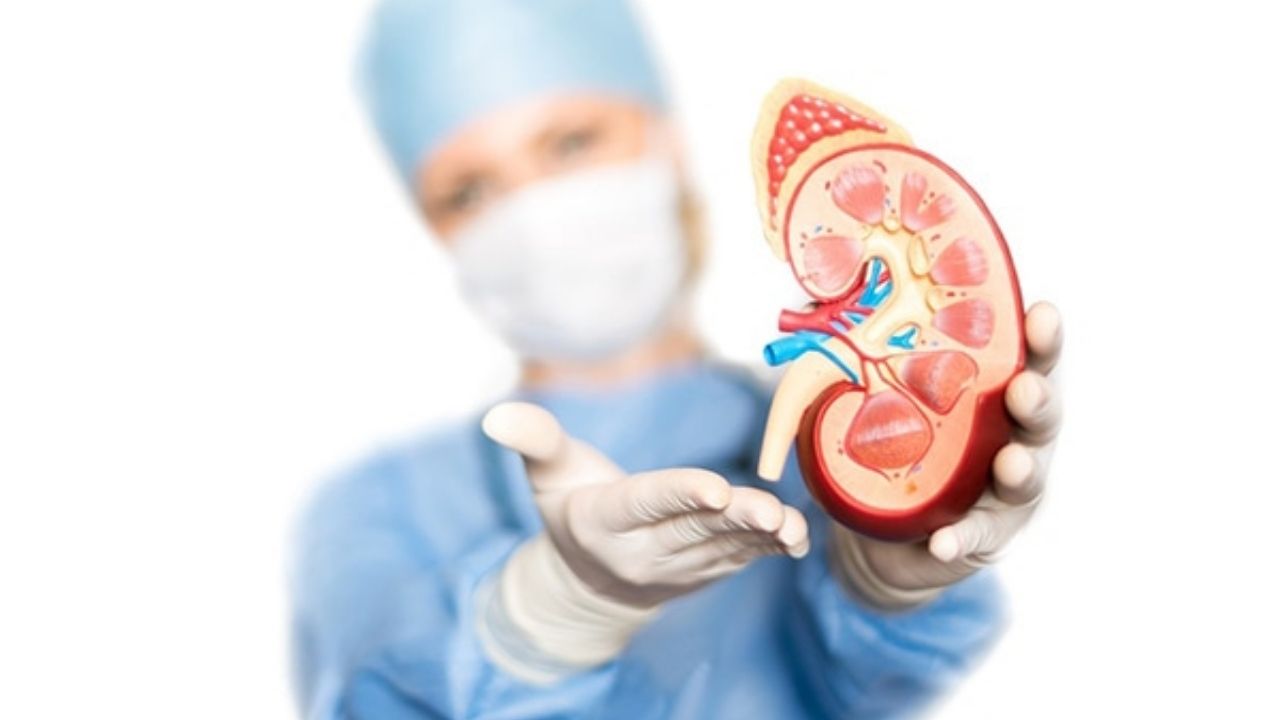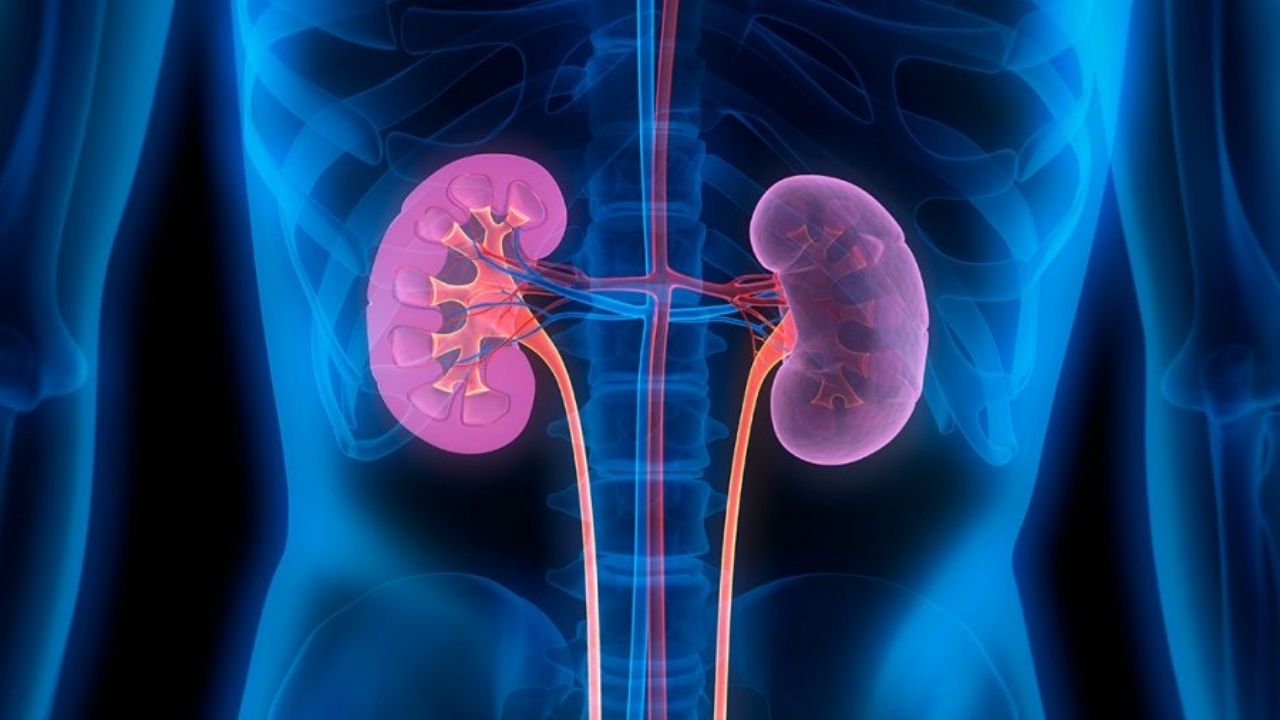What is kidney failure?
Different reasons can cause kidney failure, making one or both kidneys unable to efficiently perform the above functions. Our kidney function is like a wheelbarrow with two wheels: if we lack one, but the other is in good condition, it will be able to perform its function properly, although that single kidney must be protected especially so that the “overload” to which it is subjected does not lead to failure as well. In this way, the failure of a single kidney in a person who has another healthy kidney will not cause kidney failure, although certain precautions must be followed, for example, after sixty years of age or when taking drugs.
What are the kidneys for?
The kidneys are two twin organs that are part, together with the ureters, the bladder and the urethra, of the urinary system. This is responsible for filtering the blood, thus forming urine, and expelling it from the body.

Located symmetrically on both sides of the spine, just below the thoracic cavity, the kidneys are about the size of a fist and shaped like a bean. They contain more than a million tiny filters called glomeruli, which are what, when healthy, allow the kidneys to perform different functions, including:
- Filter waste and toxic substances from the blood and produce urine , which the ureter will then lead to the bladder and then go out through the urethra.
- Regulate the hydration of our organism: they control the amount of liquid to conserve and eliminate excess liquid.
- Regulate the concentration in the blood of substances such as sodium, potassium, calcium, phosphorus, bicarbonate and other ions.
Among its most relevant functions to understand what happens when the kidneys begin to fail, it should be taken into account that these organs regulate blood pressure, help the formation of red blood cells in the bone marrow (whose deficiency can manifest as anemia) and They contribute to the development and good health of the bones, avoiding bone fragility.
What types of kidney failure are there?
Classically, kidney failure can present in two ways:
- Acute renal failure (ARF): the kidney stops working abruptly, over a period of hours to days. Treatment may be needed immediately, including dialysis. On many occasions, it is a reversible alteration with correct treatment and that may not leave sequelae once the cause has been resolved.
- Chronic kidney failure (CKD): it is a chronic kidney disease that persists over time. It advances in a progressive and irreversible way. The rate of its progression will depend on its cause, as well as the rest of the factors involved in its appearance (age of the patient, general condition, management of blood pressure, avoidance of drugs that are toxic to the kidney and correct diet). Currently, there is a tendency to talk more about chronic kidney disease (CKD), rather than chronic kidney failure, and it usually develops over five stages.
Who is affected?
According to the EPIRCE study (Epidemiology of Chronic Renal Insufficiency in Spain), promoted by the Spanish Society of Nephrology (SEN) with the support of the lMinistry of Health, Social Services and Equality , approximately 10% of the adult population suffers from some degree of chronic kidney disease, while 6.8% are already in the most serious stages (3-5) of the disease. Given its relationship with aging, the prevalence increases with age: from 3.3% of cases among people aged 40-64 years, it rises to 21.4% among those over 64.
On the other hand, according to the SEN , there are currently about 20,000 patients on dialysis (stage 5D) in Spain.
What Causes Kidney Failure?
The most common cause of acute renal failure due to a kidney problem is acute tubular necrosis, which is damage to the glomerular (filtering) unit and which, in turn, can be due to various reasons:
- Administration of some drugs and iodinated contrasts (used in some imaging tests).
- Severe episodes of dehydration.
- Very low blood pressure or obstructions caused by possible kidney stones, some tumors or an enlarged prostate in men.
For its part, the main causes of chronic kidney disease are:
- Diabetes: the level of sugar in the blood is too high.
- Hypertension: high blood pressure.
Both causes establish a “vicious circle”, since the involvement of the kidneys will worsen diabetes and blood pressure control even more.
- Other causes of kidney damage that can eventually manifest as chronic kidney disease are: chronic kidney infections; hereditary diseases that affect these (for example, polycystic kidney disease, which causes cysts in the kidneys); lupus and other immune diseases; kidney stones; congenital diseases of the kidneys and urinary tract; glomerulonephritis (which reduces the number of glomeruli); and prolonged intake of some medications (for example, anti-inflammatories that are taken to relieve joint pain).
What are symptoms of kidney failure?
How quickly kidney function deteriorates differentiates what is called acute kidney failure (rapid), from chronic kidney failure (slow and progressive). Some symptoms are typical of acute kidney failure, while others are typical of a long and slow evolution of loss of function in our kidneys. Other symptoms can appear in both situations.
Acute renal failure, given its abrupt onset, usually faces through:
- Less urine production , which may be darker, or no urine (anuria).
- Greater need to go to the bathroom , especially at night (in fewer cases, instead of less urine production, there is an increase in urine).
- Fluid retention : causes edema or swelling of the feet or ankles.
- Bags around the eyes , especially in the morning.
- Dry mouth and itchy skin.
- Digestive problems: poor appetite, nausea, vomiting, gastritis and intestinal rhythm disorders.
- Difficulty breathing.
- Uremic syndrome : accumulation of toxins that the patient is not able to eliminate due to the loss of kidney function and that produces alterations in various body systems.
- Drowsiness, tiredness, and shortness of breath.
- Difficulty thinking clearly and confusion.
- Night cramps
For its part, in the early stages of chronic kidney disease there are usually no symptoms. If the disease continues to progress, waste and toxins can begin to build up in the blood, often causing a general malaise and a metallic taste in the mouth, along with some of the symptoms described above.
Since, therefore, there can be common symptoms that are difficult to differentiate between the two situations , doctors will take into account some effects that are more typical of long-term damage and of the body’s reaction to such damage:
- Anemia : caused mainly by a decrease in red blood cells.
- Immunodeficiency: which facilitates the appearance of infections.
- Hormonal changes: hyperparathyroidism (leading to decreased calcium levels) and bone damage.
If the disease progresses without treatment, neurological alterations and cardiac arrhythmias may appear.
The person may notice these chronic alterations through the following symptoms or signs:
- High blood pressure.
- Tiredness or fatigue : anemia.
- Increased cardiovascular risk.
- Bone fractures : bone damage.
Are there risk factors for kidney disease?
Anyone can develop it , but there are several factors that increase the likelihood of kidney disease:
- Being of advanced age (60 years or older).
- Family history of kidney failure.
- Being diabetic
- Suffering from hypertension or cardiovascular diseases.
- Having chronic infections, HIV infection, or immune disorders.
- Having ingested medications for long periods of time that can damage the kidneys.
How is kidney failure treated?
The National Kidney Foundation proposes the following treatment for kidney disease and related health problems:
- Treatment of high blood pressure : through the intake of antihypertensive drugs, moderation of salt consumption, weight loss in case of overweight and following a regular exercise program.
- Protection of kidney function : by taking angiotensin converting enzyme (ACE) inhibitors and angiotensin receptor blockers (ARBs).
- Control of blood sugar level in diabetic patients: through diet, exercise and, when necessary, the administration of insulin or antidiabetic drugs.
- Control of high cholesterol level: through diet, exercise and, if necessary, drug treatment.
- Treatment of anemia: with iron supplements and in some cases drugs that promote the production of red blood cells.
- Treatment for bone and mineral metabolism disorders : using drugs and a diet that reduces the amount of phosphorus, with special care in the intake of dairy products, nuts, seeds and dried legumes, which are products rich in phosphorus.
- A diet that takes into account the amount and type of protein that is ingested may also be necessary. Given the differences in dietary recommendations depending on the phase of kidney disease, it is important to obtain specialized advice from the doctor or specialist when making the relevant dietary adjustments.
- During treatment, the evolution of the disease should be periodically monitored by blood and urine tests.
On the other hand, in the later stages of kidney disease, it may be necessary to resort to:
- Dialysis : which removes waste and excess fluid from the blood.
- Kidney transplant : which will replace the damaged one.
10 Tips for Living with Kidney Disease
People who suffer from this problem can continue to lead a normal life, but they must take some precautions in their day to day:
• 1. Regularly check your health.
It is very important that you take regular blood and urine tests, because kidney disease does not usually present symptoms in the early stages and only this type of test can detect it early, as well as help control its progress once diagnosed. Also monitor your cholesterol, sugar and blood pressure levels.
• 2. Be cautious with the consumption of medicines.
Do not self-medicate and always warn the doctor that he is going to prescribe a drug for the problem you suffer and the stage in which you are. In this way, you can adjust the dose to your degree of kidney failure.
• 3. Reach and stay at your ideal weight.
If you are overweight, it is important that you shed those extra pounds.
• 4. See a nutritionist.
Your diet will be key when it comes to slowing down the progression of the disease, so it is highly recommended that a nutrition expert advise you on the type of diet that is most convenient for you and teach you what type of nutrients you need.
• 5. Pay attention to the proteins you eat.
Avoid portions that are too large and get specialized advice to properly combine proteins of animal origin (red meat, chicken, sein, fish, eggs and dairy) and those of plant origin (legumes and nuts …).
• 6. Cook and eat in a heart-healthy way.
To prevent fat from accumulating in your heart and kidneys, prepare foods in the oven, sautéed, or grilled, rather than fried. Use olive oil and opt for lean meats and fish.
• 7. Moderate sodium intake.
In total, you should have less than 2.5 grams of salt a day. To do this, reduce the salt you use when cooking and read the labels of the food when you buy it. Try not to eat pre-cooked meals.
• 8. Watch what you drink.
Drink the same amount of water as usual, but avoid dark-colored sodas, fruit-flavored drinks, or packaged teas, as they can contain too much phosphorus. An alternative is lemonades and homemade iced teas. And, if you have to limit potassium, do not drink orange juices, but it is better to opt for apple, grape or pineapple. Of course, moderate or eliminate the consumption of alcoholic beverages.
• 9. Stop smoking.
Tobacco can worsen the state of your kidneys.
• 10. Incorporate sport into your daily routine.
In addition to helping you maintain your weight, practicing daily physical activity will help keep cholesterol in check and increase your general well-being.
